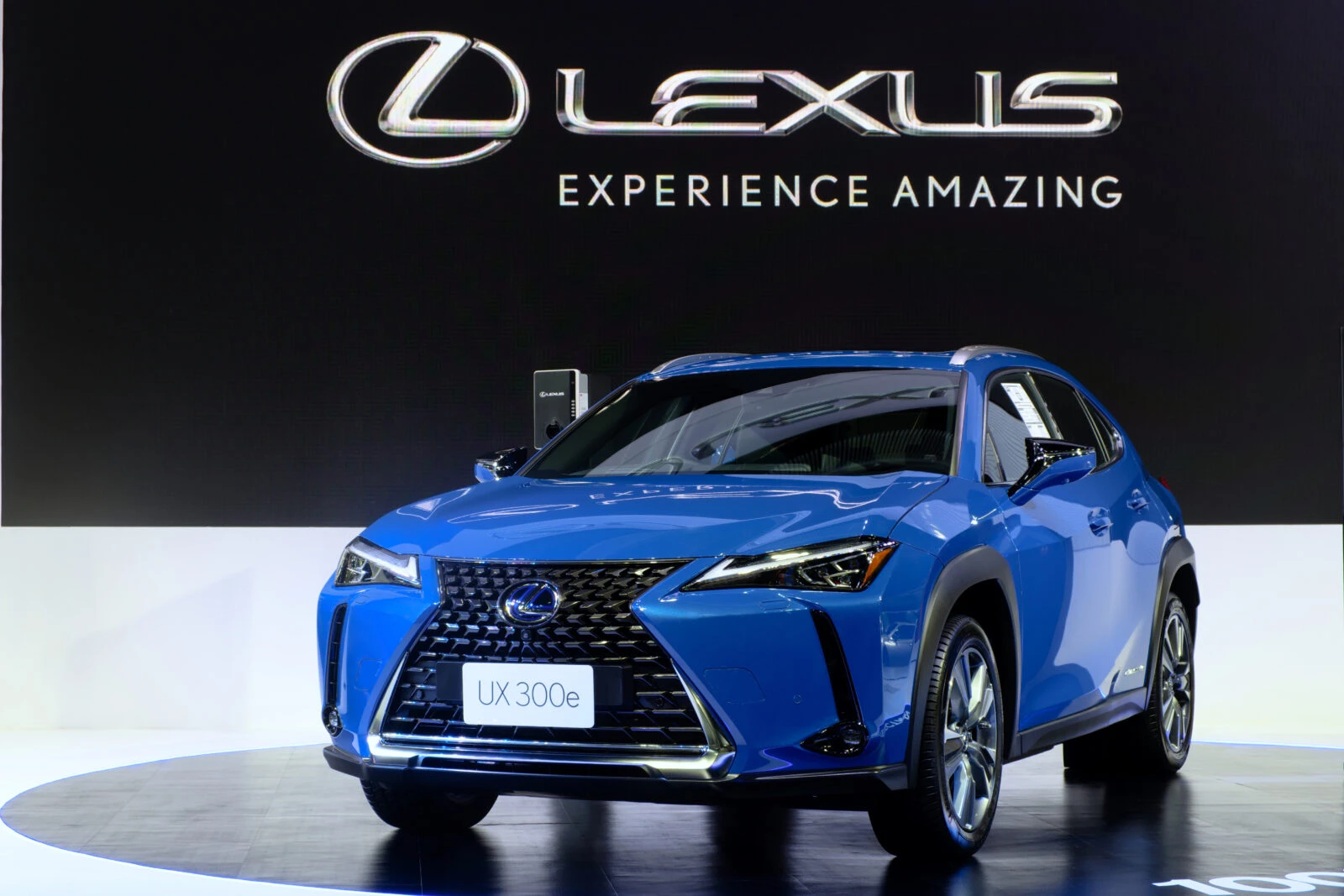Japanese Toyota inks $2B deal to produce Lexus-branded EVs in China
 Toyota and Lexus logos are displayed on overhead billboards at the Bangkok International Motor Show 2025 in Nonthaburi, Thailand, on April 4, 2025. (Adobe Stock Photo)
Toyota and Lexus logos are displayed on overhead billboards at the Bangkok International Motor Show 2025 in Nonthaburi, Thailand, on April 4, 2025. (Adobe Stock Photo)
Toyota, Japan’s largest automaker, signed a $2 billion agreement on Tuesday with Shanghai’s municipal government to establish a wholly owned electric vehicle (EV) manufacturing facility in China as part of its broader strategy to expand its presence in the world’s largest automotive market.
The Japanese automaker plans to invest 14.6 billion yuan (approximately $2 billion) in a new energy vehicle (NEV) project in Shanghai’s Jinshan district, according to state-run Xinhua News Agency.
The facility will focus on the research, development, production, and sale of Lexus-branded electric vehicles and EV batteries.

The announcement comes amid escalating trade tensions between Washington and Beijing, prompting automakers to reassess their global supply chains.
Just a week earlier, Honda announced plans to shift part of its domestic production to the United States in an effort to avoid a 25% auto tariff imposed in addition to existing reciprocal levies.
Toyota joins Tesla in expanding EV footprint in Shanghai
Toyota’s Shanghai project is expected to become a benchmark for carbon-neutral manufacturing, introducing advanced technologies that could serve as a global model for sustainable automotive production, the company said.
Tatsuro Ueda, CEO of Toyota’s China operations, emphasized the strategic importance of the initiative for both domestic and international markets.
Construction of the plant is scheduled to begin in June, with production targeted to start in 2027. While Toyota has not disclosed updated capacity figures, it previously stated in February that the facility would initially produce around 100,000 vehicles annually and create roughly 1,000 jobs during the launch phase.
This development follows the emergence of other major EV hubs in the region, most notably the U.S.-based Tesla Gigafactory in Shanghai, which has been operational since 2019 and has an annual production capacity of over 750,000 electric vehicles.
Amid this industrial expansion, trade relations between the U.S. and China remain tense. Chinese exports to the U.S. currently face tariffs as high as 145%, while Beijing has raised import duties on American goods to as much as 125%.
Japan, the United States’ largest trading partner, is also subject to a 24% reciprocal tariff as bilateral negotiations continue to address trade disputes.



